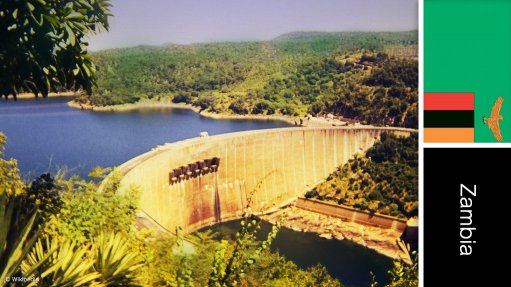
Name of the Project
Kariba dam rehabilitation project (KDRP).
Location
Zambia/Zimbabwe.
Client
The Zambezi River Authority (ZRA) operates, maintains and manages the Kariba dam on behalf of the governments of Zambia and Zimbabwe.
Project Description
After almost 60 years of serving the Southern Africa region, the Kariba dam requires rehabilitation to ensure its longevity.
The natural riverbed immediately downstream of the dam has eroded into an 80-m-deep plunge pool, as a result of routine heavy spillage of floodwater over the years. The erosion, instead of taking the expected downward trend, has also progressed towards the dam foundation, following a rock fault that had not been detected during the design and construction of the dam. Routine monitoring and the implementation of routine interventions, such as crevice underwater repairs as well as controlled spillage, have slowed the natural erosion. No significant changes to the plunge pool depth and shape have been recorded in the past 15 years.
The erosion has threatened to undercut and destabilise the foundations of the wall.
An analysis of the monitoring results by the ZRA has also shown continuous swelling of the wall concrete, owing to slow chemical reactions – alkaline aggregate reaction – over the years. This has affected the smooth and safe operation of the spillway gates. In the longer term, additional swelling could cause the spillway gates to jam. Failure to invest in the timely rehabilitation of the dam will result in the gradual deterioration of the key safety features associated with the structure.
Rehabilitation measures include:
• the design, fabrication and installation of an emergency gate and a new gantry to prevent the uncontrolled loss of water in the event of floodgate failure, which will result in water levels dropping to below the minimum operating levels and interrupt power production;
• the refurbishment of the upstream stop-beam guides and the replacement of secondary concrete to prevent failure during the operation of stop-beams; and
• reshaping the plunge pool downstream of the dam to limit scouring and erosion that could potentially undermine the dam foundations, leading to dam failure.
Potential Job Creation
The KDRP will create some job opportunities for skilled, semiskilled and general workers, particularly pertaining to the plunge pool reshaping.
Value
The total project cost was estimated at $294-million, which will be released in tranches spread over the duration of the project. The project is being funded by the European Union (EU), the World Bank, the African Development Bank (AfDB), the government of Sweden and the ZRA on behalf of the governments of Zambia and Zimbabwe.
Duration
The KDRP works, which started in earnest in 2017, will take eight years to complete. The plunge pool reshaping, which is estimated to take three years to complete, will be followed by the refurbishment of the spillway, which will take about five years to complete.
Latest Developments
The KDRP is progressing steadily, with the plunge pool currently in the implementation phase and the spillway refurbishment works under procurement, the ZRA has reported.
Site establishment for the plunge pool reshaping, which includes the construction of the site offices, accommodation and workshops, has been completed and the construction of the access road to the plunge pool has begun, following agreement on the proposed route of the road reached in the first quarter of 2018.
Key Contracts and Suppliers
EU (grant financing); World Bank and AfDB (loan and part grant financing); government of Sweden (grant financing) and Razel-BEC (plunge pool reshaping contractor).
On Budget and on Time?
The project is still on track to be completed in 2025.
Contact Details for Project Information
ZRA public relations and communications manager Elizabeth Karonga, tel +260 211 230551 or email karonga@zaraho.org.zm; info@zaraho.org.zm.